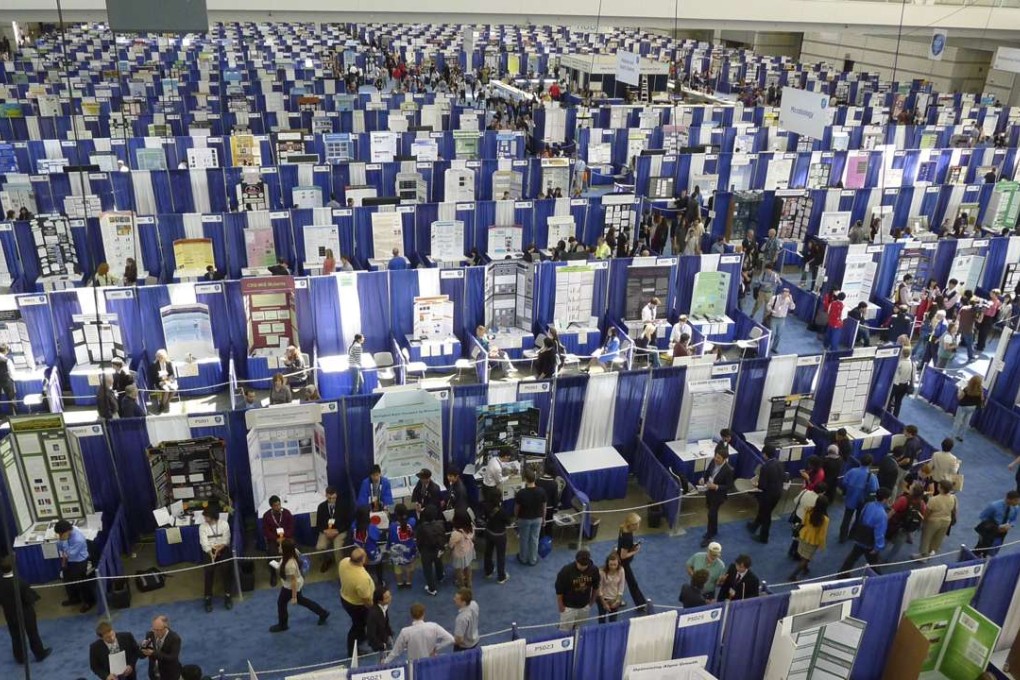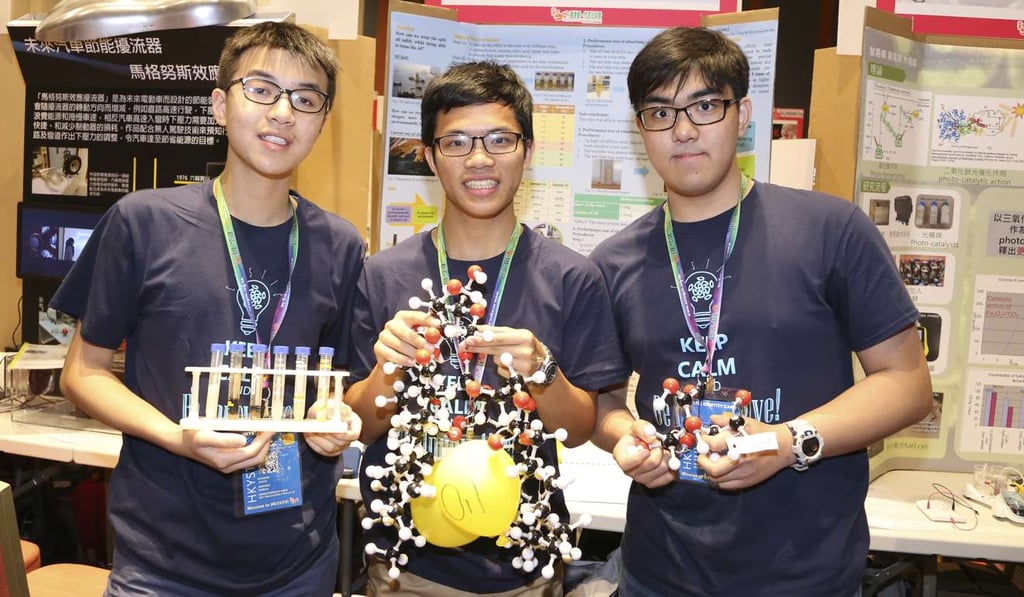Why Hong Kong children have fallen behind in science race, and the volunteers pushing them to catch up
Despite some isolated success stories, interest among Hong Kong students in science is falling, with ill-informed teachers and parents and school curriculum changes among the problems

If Hong Kong is ever to shine as a knowledge-based economy, the ingenuity of 300 schoolchildren on display at Hong Kong Science Park this month was encouraging.
They were competing in the finals of the Hong Kong Youth Science and Technology Innovation Competition (HKYSTIC), an annual event organised by the Hong Kong New Generation Cultural Association. With nearly 4,000 applicants from more than 350 local schools, it’s the city’s most popular science competition.
“Most important is the creativity and innovation – how they apply their skills from the classroom in tackling a real-life problem,” says Dr Jimmy Wong Kam-yiu, the association’s director.
This year, the overall champions were three Form Five boys from Po Leung Kuk Ngan Po Ling College in To Kwa Wan, who invented oil-absorbing materials in a gel-like form, which could be used for marine oil spills. It’s cheap to manufacture and once the oil is absorbed, it can be extracted. Both the oil and the absorbing materials can be recycled and reused.

STEM is a new buzz-phrase in education, and a new survey commissioned by the Croucher Foundation – a local independent organisation that promotes STEM – reveals much of it is taught outside the classroom.